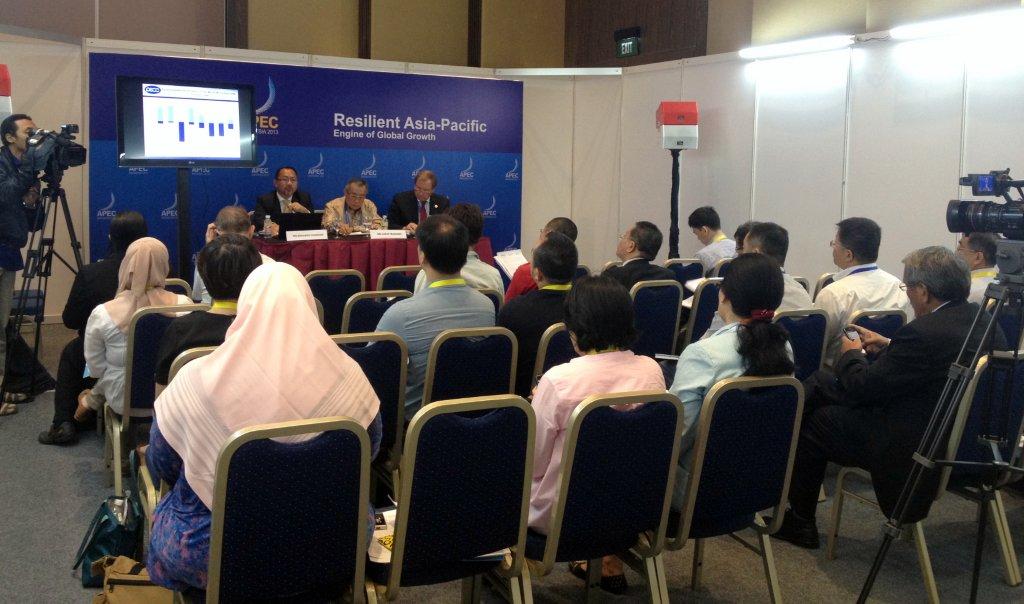Newsletter from the Pacific Economic Cooperation Council (PECC)
PAST EVENTS
Connectivity key to inclusive growth in the Asia-Pacific
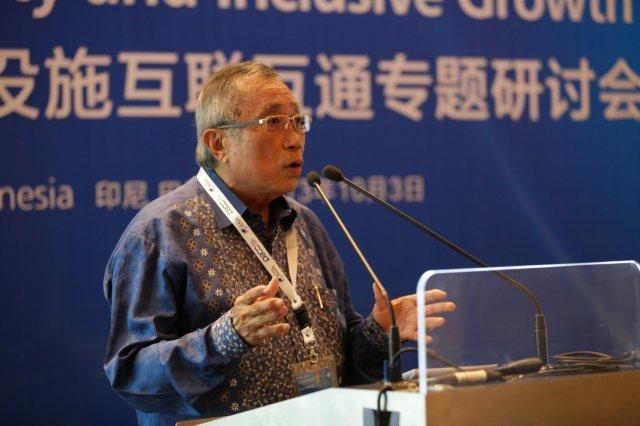 In 2013, Indonesia has made equitable growth a key priority looking at a Connectivity Framework to ensure that the benefits of regional economic integration are more equitably shared. On 3rd October 2013, during the APEC Leaders' Week, PECC and the Boao Forum for Asia co-organized a seminar on connectivity and inclusive growth in Bali, Indonesia. The objective of the seminar was to formulate a unifying framework that promotes better physical, institutional and people-to-people linkage in the Asia-Pacific region. While APEC’s work over its past two decades has been on removing barriers, the next stage is to build connections among regional communities. In 2013, Indonesia has made equitable growth a key priority looking at a Connectivity Framework to ensure that the benefits of regional economic integration are more equitably shared. On 3rd October 2013, during the APEC Leaders' Week, PECC and the Boao Forum for Asia co-organized a seminar on connectivity and inclusive growth in Bali, Indonesia. The objective of the seminar was to formulate a unifying framework that promotes better physical, institutional and people-to-people linkage in the Asia-Pacific region. While APEC’s work over its past two decades has been on removing barriers, the next stage is to build connections among regional communities.
Related press releases
More...
State of the Region 2013-2014 released in Bali, APEC Leaders' Week
The State of the Region 2013-2014 report was released on October 3rd, 2013 during the PECC-Boao Forum for Asia joint seminar on "Connectivity and Inclusive Growth in the Asia-Pacific." The panel discussion consisted of presentations by: Mr. Eduardo Pedrosa, Secretary General of PECC and Coordinator of the Report; Dr. Chen Bo, Associate Department Chair, Shanghai University of Finance and Economics; Dr. Kenichi Kawasaki, Adjust Fellow, Japan Institute of International Affairs; Dr. Federico Macaranas, Professor, Asian Institute of Management. The sessionw as moderated by PECC Co-Chair, Ambassador Don Campbell.
The State of the Region report is the flagship annual publication of PECC. It includes a survey of opinion-leaders on the priorities for Asia-Pacific cooperation and this year, a special chapter was dedicated to recommendations for enhancing the region's work on economic and technical cooperation.
The report was also released to the media separately at the international media center, Bali Nusa Dua Convention Center, on October 4th.
Related news clippings
Related press releases
UPCOMING EVENTS
Energy Transition Seminar 1: Making the most out of available resources | Victoria, BC, Canada | November 7-8, 2013
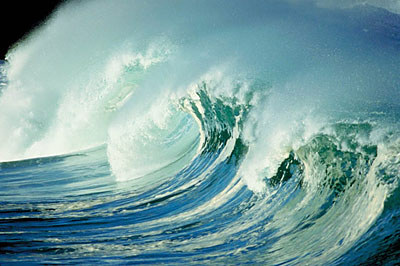 Energy is at the top of the list of priorities for all PECC economies. We need to invest more in developing and optimizing new types of energy. We need to explore the most efficient ways of ensuring smooth transitions from fossil fuels to non-traditional or renewable energies that offer more sustainable solutions to meet the growing energy demands. Divided into a series of three seminars, the project will examine energy transition in three main aspects: 1) commercial development and market viability of new energies, 2) technologies involved in energy transition and their applicability, and 3) public energy policies. Energy is at the top of the list of priorities for all PECC economies. We need to invest more in developing and optimizing new types of energy. We need to explore the most efficient ways of ensuring smooth transitions from fossil fuels to non-traditional or renewable energies that offer more sustainable solutions to meet the growing energy demands. Divided into a series of three seminars, the project will examine energy transition in three main aspects: 1) commercial development and market viability of new energies, 2) technologies involved in energy transition and their applicability, and 3) public energy policies.
The first seminar will aim to:
- open discussions and make recommendations in favor of commercial development of marine energies;
- identify different possibilities that marine energies could offer in meeting the two important challenges regarding renewable energy: a) predictability, and b) storage or linkage to the existing power grids; and
- encourage discussions on the need to bring new types of energies to market competitiveness by focusing on: a) advancing the technical knowledge from the drawing board to the market, and b) enhancing the capability of industrial enterprises to reform their business models with the aims to facilitate energy transition in the PECC economies.
Download the program agenda
More...
28th Pacific Economic Community Seminar: “TPP and RCEP: Emerging Dual-Track Pathways towards FTAAP” | Taipei, Chinese Taipei | November 13-14, 2013
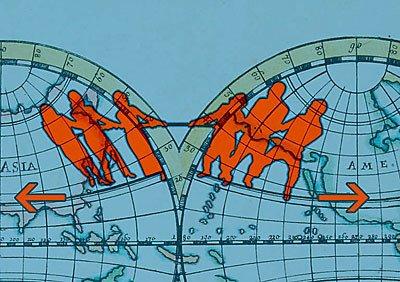
The 28th Pacific Economic Community Seminar: “TPP and RCEP: Emerging Dual-Track Pathways towards FTAAP” will be held on November 13-14, 2013 in Taipei. (For the list of speakers and program agenda, click on the link)
The most recent crisis had serious impacts on the world economy through the channel of trade. Protectionism in many forms seems revived at bad times, and transaction costs hindering the development of healthy business environment increased. The regional economic integration (REI) aiming at reducing or eliminating unnecessary economic barriers has been proposed, such as the initiative of FTAAP and in-progress Trans-Pacific Partnership (TPP) as well as Regional Comprehensive Economic Partnership (RCEP). We believe that economic integration with freer trade would help create a healthier business environment by eliminating protectionism in many possible ways. After all, REI is able to provide the much needed recovery momentum. However, there still exist many political and economic challenges limiting the progress of REI. For that reason, we need to cope with challenges and explore potential opportunities. More...
Click for program agenda
MEMBER UPDATES
KOPEC: Dr. Lee Il Houng Appointed KOPEC Chair
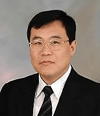
Dr. Il Houng Lee has been appointed as the next Chair for KOPEC (Korea committee for PECC) on 5 August 2013 as he assumed his position as the new President of Korea Institute for International Economic Policy (KIEP).
Prior to KIEP, Dr. Lee has filled the posts of Ambassador for International Cooperation and G20 Sherpa at the Ministry of Foreign Affairs, Republic of Korea; Advisor at the Asia Pacific Department of the IMF, and the IMF Chief Resident Representative in China. He has earned his Ph.D. in economics from Warwick University (UK), his M.A. in economics from the University of Essex (UK), and his B.A. in economics from the London School of Economics (UK). His full CV is available here.
PUBLICATIONS
State of the Region 2013-2014 (pdf, 3MB)
86 pages
(To download individual chapters please click here.)
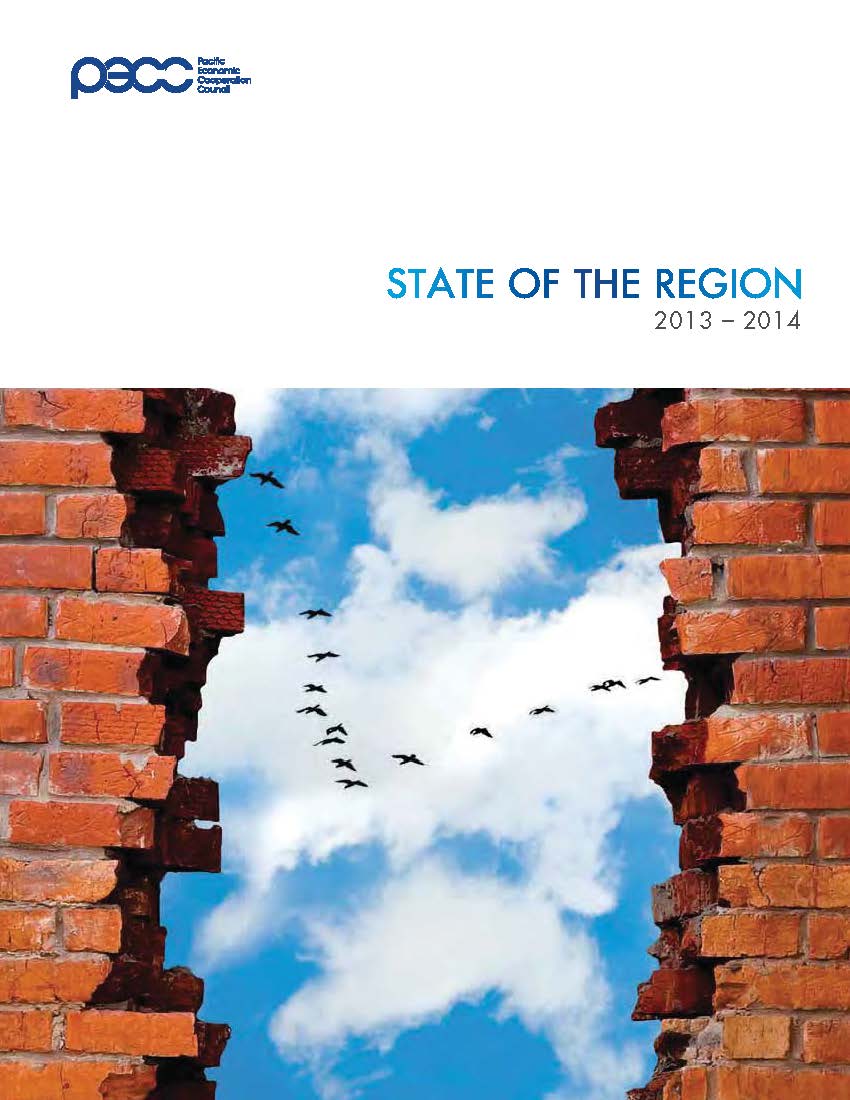 The State of the Region report is an annual statement of PECC’s views on the major developments affecting Asia-Pacific regional cooperation. The report contains a broad overview of economic state of relations and other issues as they relate to economic state of the region. It contains results from its annual survey of opinion-leaders of perceptions on key developments in the region and priorities for APEC. It is useful for gauging converging as much as diverging perceptions of stakeholders from business, government, and the research/ media/ civil society. The 560 respondents to this year's survey came from 28 economies and the survey was conducted between July 9th and August 5th, 2013. The State of the Region report is an annual statement of PECC’s views on the major developments affecting Asia-Pacific regional cooperation. The report contains a broad overview of economic state of relations and other issues as they relate to economic state of the region. It contains results from its annual survey of opinion-leaders of perceptions on key developments in the region and priorities for APEC. It is useful for gauging converging as much as diverging perceptions of stakeholders from business, government, and the research/ media/ civil society. The 560 respondents to this year's survey came from 28 economies and the survey was conducted between July 9th and August 5th, 2013.
The report was officially released on October 3rd, during the APEC Leaders' Week, Bali, Indonesia. More...
DISCUSSION FORUM
Insight: APEC: They Came, They Saw, They...?
Eduardo Pedrosa
Secretary General, PECC
The APEC leaders’ meeting in Bali is over. The week-long series of events were but the tip of the iceberg when it comes to the APEC process. APEC is an institutionalized process with thousands of experts attending more than 100 meetings, all competing for a mention in the leaders’ statement.
Each year, the Pacific Economic Cooperation Council (PECC) conducts a survey on what opinion leaders think the priorities should be from a list of 30. Many of the issues can be combined. More...
Connectivity and the Bali agenda
Christopher Findlay
Professor, University of Adelaide/ AUSPECC
Connectivity is a hot topic in regional cooperation and rightly so. Greater levels of and improved performance in connectivity saves real resources, improves access to markets, plugs economies into regional supply chains, raises income and helps deal with shocks and disasters. The values of connectivity apply to movement of goods, to movements of people and provision of services. More...
Opinion: APEC 2013 in Bali -- a foretaste of APEC in Manila 2015
Federico Macaranas
Professor, Asian Institute of Management, Manila, the Philippines
THE BALI airport temporarily closed for commercial flights for security reasons, even as a new $300-million terminal has just been constructed (the cost of a one-day shutdown to the US government); dug up tarmac redesigned without chemicals, engineering works rushed from underpasses to a new $215-million oversea toll roads with dedicated motorcycle lanes crossing the main island across the waters to Nusa Dua; relocated monuments repainted, flag poles fitted with LED lights alongside solar-powered streetlamps, cheap hotels sprouting side by side with the glitzy residences for the officials attending the Asia Pacific Economic Cooperation (APEC) 2013 meetings, including the $100-million Agung Pomodoro, site of the summit on Oct. 7 to 8, melding Balinese opulence and French luxury in 350 rooms and 17 villas -- these are what initially strike travellers attending the various events around the annual gathering of economic leaders hosted by Indonesia which is spending $35 million for its second hosting in less than two decades. More...
Are there many building blocks to freer trade?
Steven CM Wong
Senior Director, Institute of Strategic & International Studies (ISIS), Malaysia
LOGIC: The more extensive and deeper an agreement is, the more likely it is to be the de facto standard
How does the Trans-Pacific Partnership (TPP), now being negotiated among 12 Asia-Pacific countries, including four from Asean, impact the latter’s Regional Comprehensive Economic Partnership (RCEP)?
It is easy to claim, as some have done, that both are building blocks towards freer trade. But are they really? This claim is further doubtful if the two blocks are of different size, weight and degree of ambition. More...
Take best advantage of APEC for Asia Pacific integration
Ippei Yamazawa
Professor Emeritus, Hitotsubashi University, Japan
This year Indonesian host has tried to highlight the Bogor Goals so that we have been invited to report directly our IAP review study at Committee for Trade and Investment (CTI) Workshop in Medan, ABAC3 in Kyoto, and ASCC in Jakarta, that is all tripartite stakeholders , officials, business, and academics in July. By and large our report was welcomed and mentioned in the recommendation letters by the last two to the APEC Leaders.
For young readers who are not familiar with the Bogor Goals, let me briefly summarize this history of APEC for the past 19 years. In 1994, Indonesian President Soeharto set for APEC a bold target of achieving ‘free and open trade in the Asia Pacific by 2020’. How can we achieve it? More...
|


 In 2013, Indonesia has made equitable growth a key priority looking at a Connectivity Framework to ensure that the benefits of regional economic integration are more equitably shared. On 3rd October 2013, during the APEC Leaders' Week, PECC and the Boao Forum for Asia co-organized a seminar on connectivity and inclusive growth in Bali, Indonesia. The objective of the seminar was to formulate a unifying framework that promotes better physical, institutional and people-to-people linkage in the Asia-Pacific region. While APEC’s work over its past two decades has been on removing barriers, the next stage is to build connections among regional communities.
In 2013, Indonesia has made equitable growth a key priority looking at a Connectivity Framework to ensure that the benefits of regional economic integration are more equitably shared. On 3rd October 2013, during the APEC Leaders' Week, PECC and the Boao Forum for Asia co-organized a seminar on connectivity and inclusive growth in Bali, Indonesia. The objective of the seminar was to formulate a unifying framework that promotes better physical, institutional and people-to-people linkage in the Asia-Pacific region. While APEC’s work over its past two decades has been on removing barriers, the next stage is to build connections among regional communities.